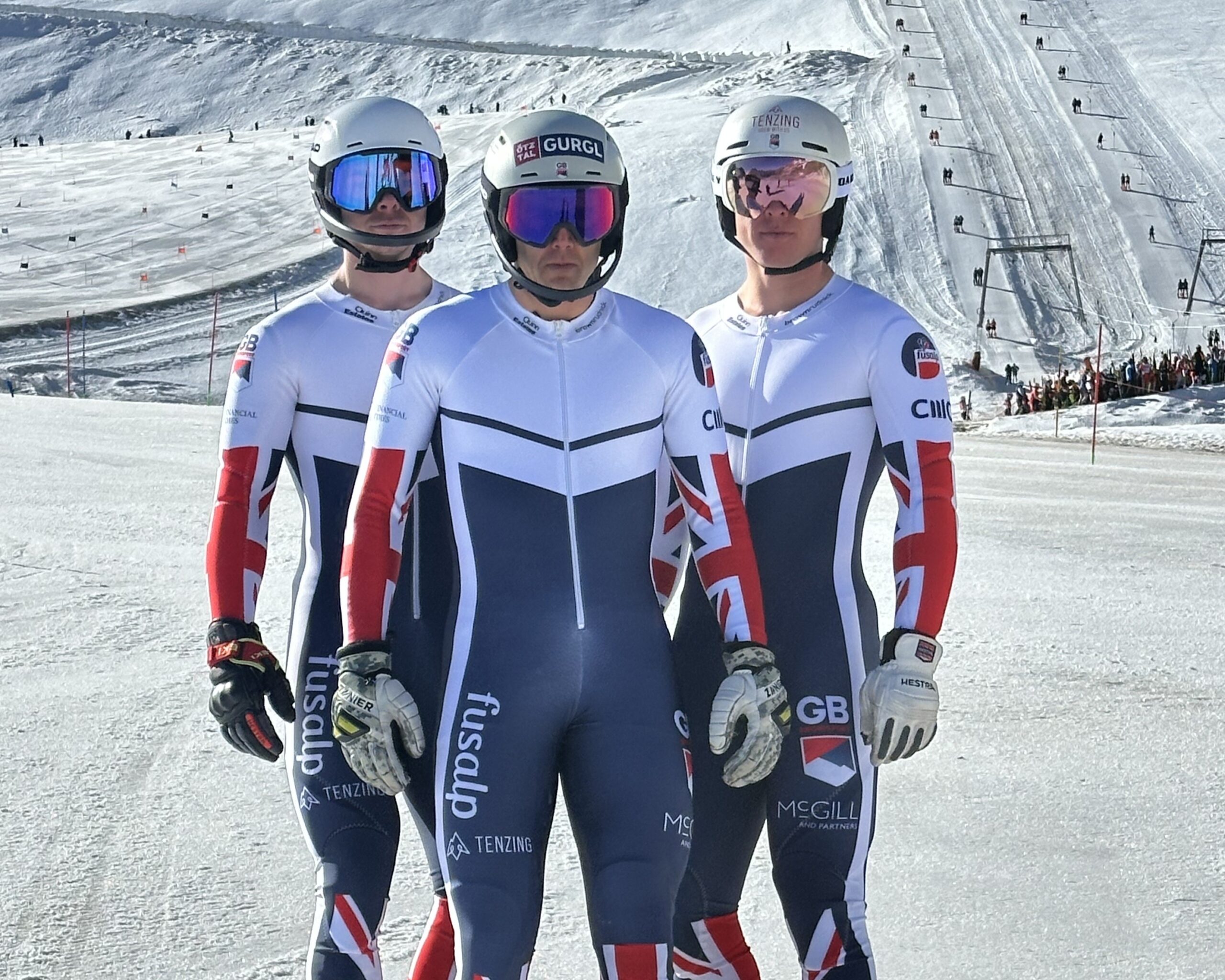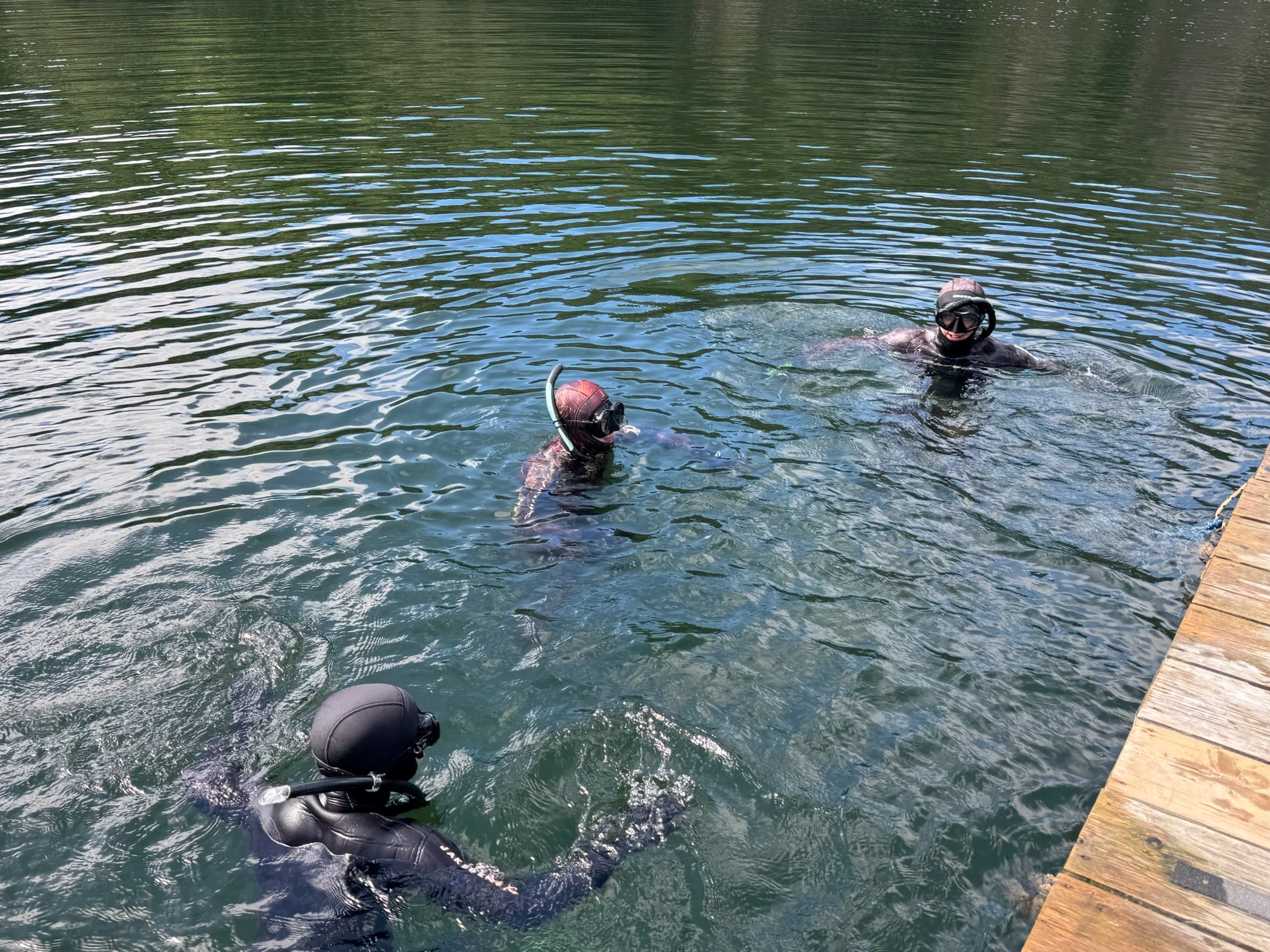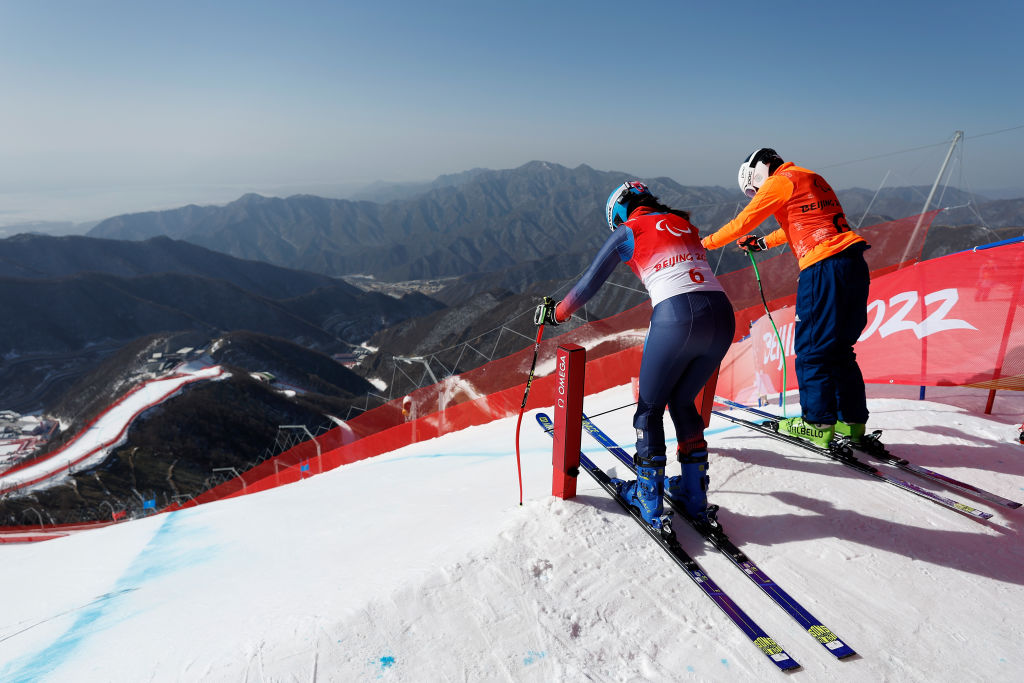
How Britain’s Para Alpine Development Team programme is setting the foundations for future success
Britain’s legacy in Para Alpine skiing is indelibly associated with the Paralympic Winter Games. From John Watkins’ Alpine Combined bronze at the 1984 Games in Innsbruck – one of two British skiing medals in a Games where Britain took its first ever Paralympic Winter Games podiums – to Millie Knight, Menna Fitzpatrick, and Neil Simpson’s five medals at the last Games in Beijing, Britain’s track record in Para Alpine skiing is among the world’s finest.
It’s a sport, though, where the international standard is increasing exponentially. With every passing season, keeping up with the best in the world requires a higher level of performance, and the work to reach the World Cup circuit and ultimately the Paralympic Winter Games becomes ever harder.
For Britain to continue to succeed, the preparations at the earliest stages of a Para Alpine skier’s career needed to begin ever earlier.
As Blake Williams, Para Alpine Development Coach outlines, “reaching the top in Para Alpine skiing is just significantly harder than it used to be.
“If you think about the development of a Para Alpine athlete as steps on a ladder, way back in the early days of Para Alpine racing there would be far fewer steps than there are today, you’d be getting into the highest levels of international competition relatively quickly.”
“Now, you’ve got to climb a lot higher on that ladder, which means the demands – and the investment needed – are a lot more than they used to be.”
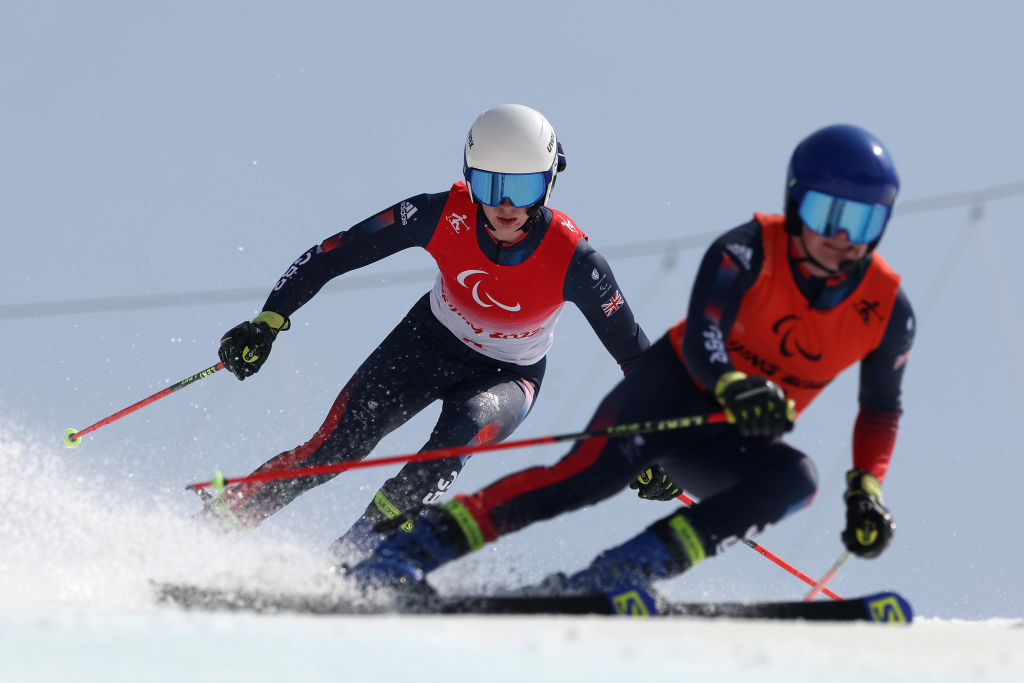
The start of the 2024/25 season saw a radical reset in approach. Months of discussions between Williams and others in the GB Snowsport and Home Nations set-up had recognised that the progress of the Para Alpine Development Team had become too diffuse, with athletes at too many different stages in their progression, to justify a unified team approach.
As Williams explains, “to take everyone along to the same development camps last season just wouldn’t have been right; there would have been too many compromises there.
“The courses being set wouldn’t have been right, the terrain wouldn’t have been right, and we’d have been making compromises on performance or compromises on safety, and I couldn’t allow for that.”
What emerged was a dedicated ‘bespoke’ development model, with Williams analysing every athlete individually across the Development Team to identify what training terrain, disciplines and races each athlete needed to reach their own highest level as methodically as possible.
It meant “a lot more work” for Williams and for the infrastructure around the Development Team, but work which yielded results both in terms of individual athlete technical progression as well as building understanding of the individual pathway to success for British Para Alpine prospects.
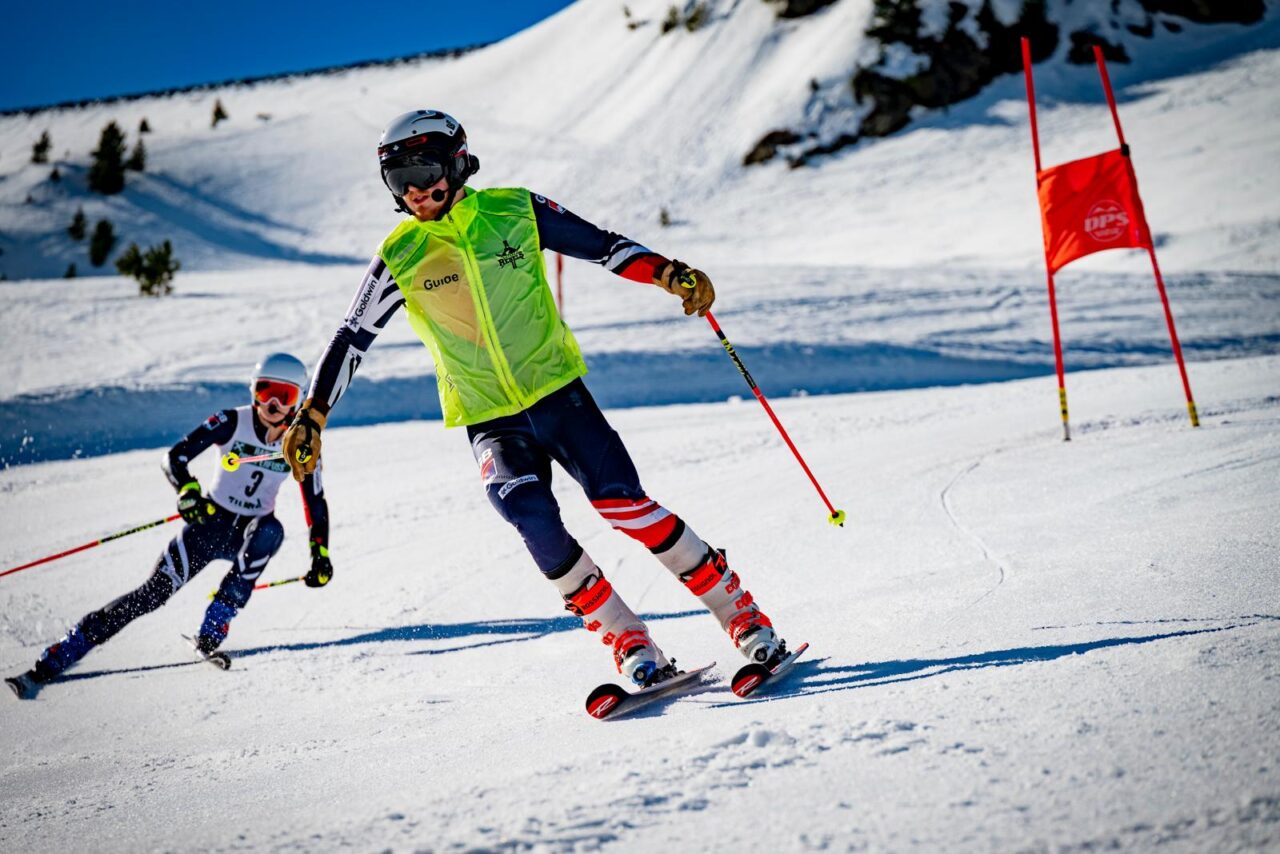
For most athletes on the Development Team – across Para winter sport as a whole, in fact – the Paralympic Winter Games has a totemic importance. Unlike the FIS Alpine World Cup circuit which enjoys iconic, highly-attended, widely-broadcast races in every week of the World Cup season, regular Para Alpine competition is more sparsely supported and has less of the week-to-week glamour of its able-bodied counterpart.
It’s hardly surprising, then, that the Paralympic Winter Games features prominently in the thinking of many athletes on the Para Alpine circuit; a factor which, as Williams sees it, offers promise as well as challenge.
“In some ways,” he says, “it’s a bit more like some of the Summer Olympic Sports, where the Games really is the biggest thing in terms of that sport.
“On the Olympic Alpine side, it’s a bit different. You’ve got events like Kitzbuehel, Schladming, Adelboden, where you’ve got thousands and thousands of people at the bottom. On the Para Alpine side, it’s really at the Paralympics where it comes into the public eye a lot more.”
It’s a factor that Williams sees play out in the day-to-day dealings with athletes training and racing in the Para Alpine development system.
“It’s a motivating factor, for sure, but my job as a coach is to try and make them see that the Paralympics isn’t the be-all-and-end-all. It’s just one step on an incredible journey in ski racing, and I don’t want them to lose sight of that.
“Inevitably they will, there’s no getting away from that, but it’s my job to try and make it not their sole focus. Actually there’s plenty of things that are more important – that they get up, eat well, train well both on and off the hill, commit, rather than just focusing on this thing at the end of the journey which might or might not happen.
“It’s about getting everyone to buy in to the journey, not just the destination.”
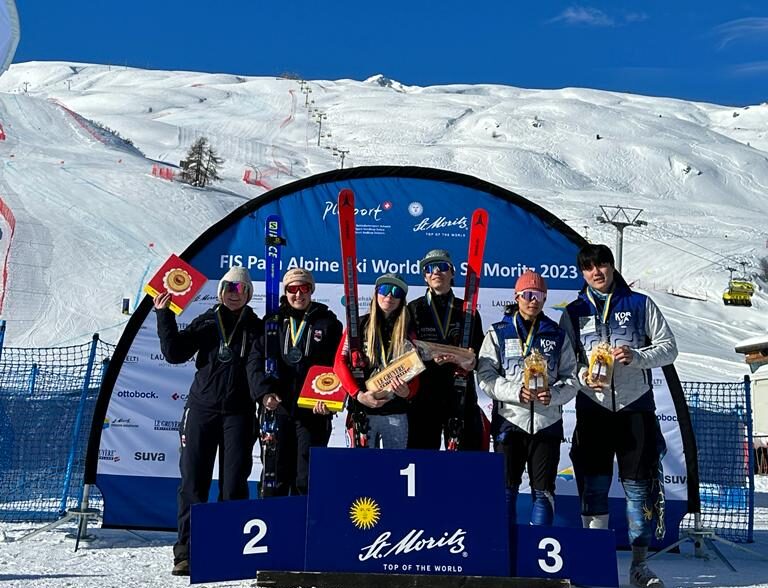
It’s a part of the approach of the Development Team that forms a major focus for Williams and the wider coaches and staff around the team.
One of the key challenges facing Para Alpine, like many Para sports, is financial. Funding below the highest levels is a familiar issue for everyone involved in or following Para sport, and for the Para Alpine Development Team it has made the support of two prominent sponsors, in Get Kids Going! and Arnold Clark, paramount to the success of the team’s plans.
“Without the funding we get, it’s difficult to see how the Development Team could function,” Williams explains. “It’s that simple.
“The impact is really, really substantial. Travel and accommodation in particular are huge costs in winter sport and particularly for Para Alpine skiing, and what the funding allows for is for each athlete to get something in the region of ten weeks of training per season which, for our ambitions and for the ambitions of the athletes, we need to be doing.
“With this sport, beyond all the complexities of tactics and technique, the equation is pretty simple: time on snow makes you a better skier. And without this sort of financial support, we just wouldn’t be able to progress in the way we need to.
“We’ve got a body of around fifteen athletes on the development pathway at various stages. And while that’s not loads, it’s a good number for a nation that’s not traditionally seen as a winter sport powerhouse. If we were to overlay the filter of those athletes who could afford the time on snow that’s needed without the financial support our funders bring, though, that number would be a lot closer to zero.”
It’s a journey and an ambition that both funders have bought into in a significant way.
Jane Emmerson, Chief Executive, Get Kids Going! said:
“Get Kids Going! has been delighted to give support to the GB Para Alpine Development Team and all its amazingly talented young skiers for many years. It has been a great pleasure seeing these youngsters develop highly successful athletes, travelling around the world, winning competitions at both World Cup and Paralympic levels – including many bronze, silver and gold medals! The charity is delighted to continue its support and work closely with the team to bring on even more talented, young disabled athletes in the future. We are thrilled to be an integral part of the team’s future development.”
John Clark, Chief Commercial Officer at Arnold Clark, said:
“At Arnold Clark, we believe in the power of sport to inspire, break barriers and create opportunities for everyone. We’re incredibly proud to support the Para Alpine Development Team as they continue to push boundaries and achieve success on the slopes.
“Their determination, resilience and passion reflect values that resonate deeply with our company, and we’re honoured to play a part in their journey.”
James Redpath, GB Snowsport’s Head of Paralympic Programmes, sees the progress of the Para Alpine Development Team in clear terms.
“Our previous experience with a ‘one size fits all’ approach to the Development Team didn’t really yield the results that we had hoped for,” Redpath explains. “So, when Blake suggested that we try a more bespoke setup I was really keen to see what could be achieved.
“The initial results indicate that it’s definitely working, with athletes’ individualised programmes allowing them to grow and develop at a pace that is right for them. That has allowed us to fast track some athletes who we think could potentially be in contention for selection for the 2026 Games, while also being able to build training plans for other athletes who are on longer development timelines”, timelines that Redpath suggests could extend as far forward as the 2034 Paralympic Winter Games.
Like Williams, Redpath is also clear on the importance of sponsor and funder support for the short and long-term successes of the development programme.
“The support and funding we get from Get Kids Going! and Arnold Clark has meant that we have been able to make all this happen,” he says. “I’m so grateful to both organisations for their continued support along with training partners such as Podium.”
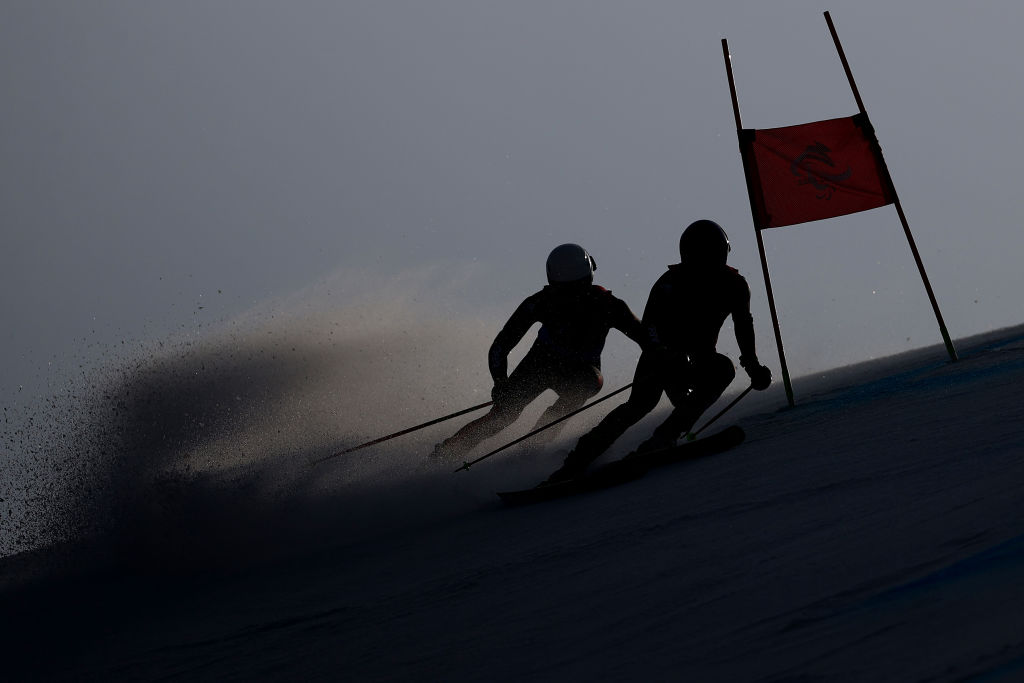
While the eyes of the world are increasingly drawn towards Milan-Cortina next year, the ambitions for the Para Alpine Development Team have a longer-term view.
“What we’re looking to do here, really, is make sure that when an athlete has met the level to join the World Class Programme and be training and competing alongside the best Para Alpine skiers in the world,” Williams explains, “that they’re ready for that jump.
“We’re working really hard to bring the Development Team and World Class Programme closer together, to make sure athletes are prepared and supported, there’s a conscious effort to make that happen, because we know its impact.
“The decisions we’re making are designed to be the right decisions for each athlete, because that’s ultimately what’s going to help us grow and bring us the success we’re looking for.”
Development Team Season Highlights
- 1st Italian Champs Super G (Fred Warburton/James Hannan)
- 2nd Italian Champs Super G (Sam Cozens/Adam Hall)
- 1st Italian Champs GS (Sam Cozens/Adam Hall)
- 1st US National Champs Super G (Fred Warburton/Ali Hall)
- 1st US National Champs GS (Fred Warburton/Ali Hall)
- 3rd Pitztal Super G Europa Cup (Fred Warburton/James Hannan)
- 18 International camps organised
- 15 races supported
 Share
Share